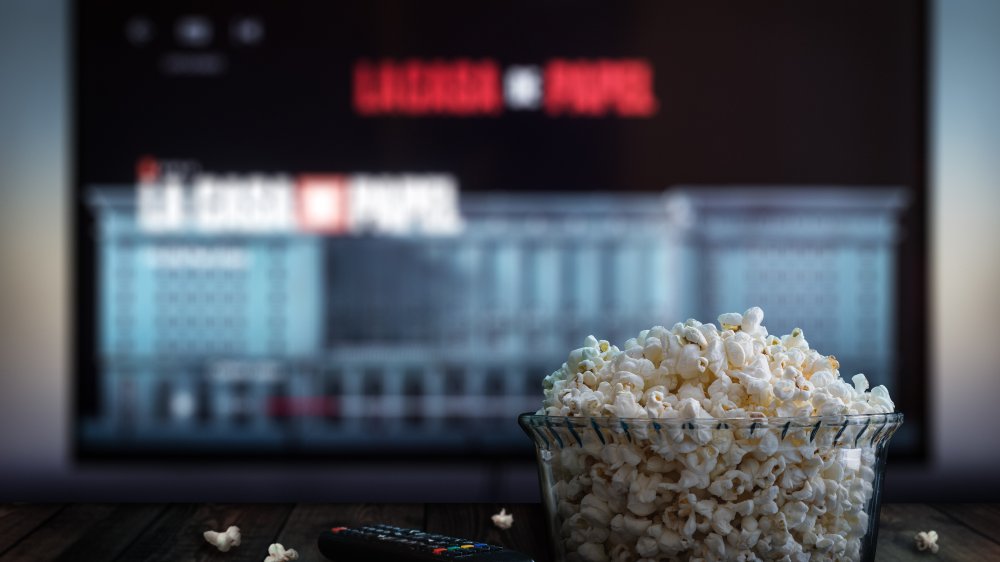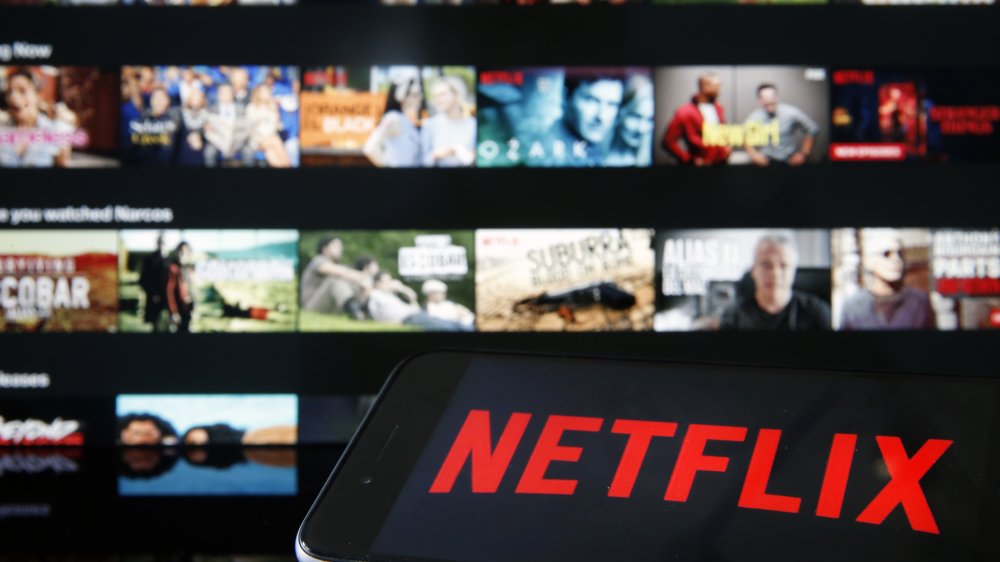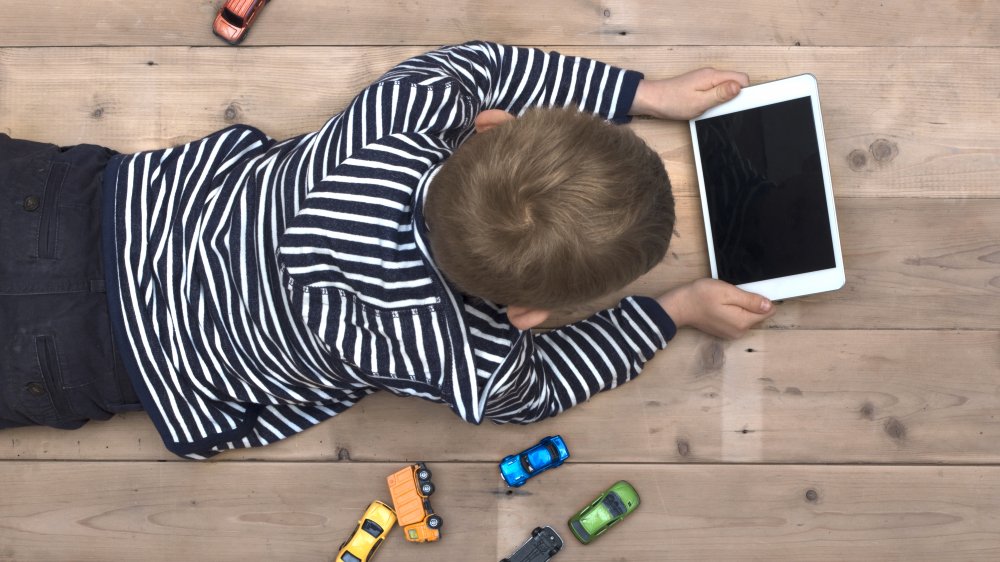The Bizarre Way Netflix Tried To Encourage Binge-Watching
When the pandemic first hit, people were worried about food, safety, and the economy. But the one thing they never asked themselves was, how are we going to entertain ourselves? And that's all thanks to streaming services like Netflix.
In the past seven months alone, people have binge-watched tiger keepers, cold case murders and disappearances, and girls going to Paris. If it weren't for the concept of binge-watching, we'd probably never finish most of these shows. But did you know, Netflix actually encourages us to binge their content? Sure, it doesn't seem like it when the service asks, "are you still watching 100% Hotter?" and the shame that you watched seven episodes in a row seeps in. Binge-watching is Netflix's entire business model, and they have ways to get people to keep their eyes glued to its many content offerings.
According to Wired, Netflix basically rewrote what it means to watch, and rewatch, shows. Some streaming services, particularly those run by networks, tend to carry only the five most recent episodes of shows. Usually, networks like to keep interest going for the latest episode of a show, because that's usually where advertisers make the most money. Netflix, on the other hand, releases all episodes at once. If before, you wanted to catch a rerun of a show, you'd have to wait around for it. With Netflix, it's all there.
Of course, Netflix sometimes goes the traditional model of trickling in episodes like conventional TV but more often, it relies on binge-watching.
Watch five episodes get a free sticker, kid
For many people, the fact that Netflix already has the full show available encourages binge-watching, wrote Mashable. People have been couch potatoes forever, but at least commercials made them stand up once in a while. But with the introduction of binge viewing, people can just keep sitting with their eyes glued on the screen.
For the most part, binge-watching doesn't pose the same health risks as bingeing something else like alcohol or food. Mashable said about 73% of subscribers think binge-watching "is a good thing." Unless you get in trouble for it. But it does take up a lot of time and keeps people sedentary. And it can be bad for children who generally should go out and play more in the first place.
So when Netflix introduced Patches as a way to encourage kids to binge-watch, people were up in arms. Wait, what Patches? Yep, Buzzfeed reported the streaming service tested out a feature called Patches, which rewarded viewers of certain shows, mainly children's shows like A Series of Unfortunate Events, with stickers and patches back in 2018. Think of it as a Girl Scout badge, watch X number of episodes, and you get a cool sticker. The stickers don't do anything; they're just collectibles.
Netflix told The Verge the Patches feature was part of a test for more interaction with their content. They wanted to see if interactivity could be a part of the service in the long run. (Netflix did add interactive elements to some shows, basically, a choose your own adventure deal)
It did not go down well with parents
Since Netflix seemingly wanted to encourage kids to binge-watch with stickers of all things, people were upset, said Buzzfeed. Some said it was irresponsible of Netflix to encourage children to sit in front of a screen — many child psychology experts advise limiting screen time for children six and above. Others said Netflix could've encouraged kids to watch educational material instead of Full House. People said children would want to demand more screen time just to get the stickers; after all, children are natural collectors.
Netflix claimed the characterization that it would encourage children to become mindless couch potatoes staring at screens was incorrect, per Gizmodo. Netflix eventually ended the Patches feature soon after the social media backlash. The streaming service said it had concluded its test and learned the Patches feature didn't work well for its subscribers.
There are many ways Netflix encourages people to binge-watch its content, but it hasn't resorted to such bizarre methods as stickers since. And well, now that people are stuck at home, it probably doesn't matter; they're gonna tune in anyway.


